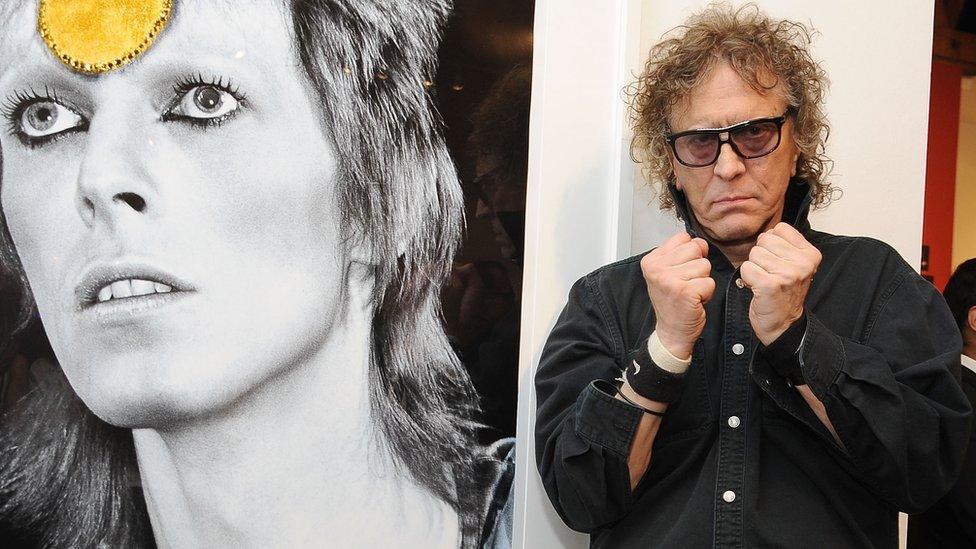David Bowie's 'rich and powerful' archive to be made public in new venue
- Published
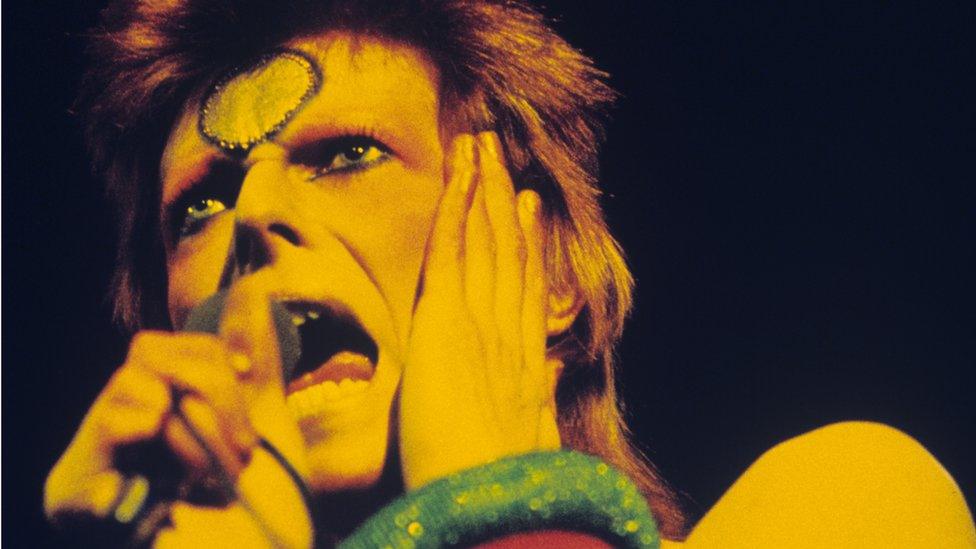
David Bowie is one of the best-selling musicians of all time
David Bowie fans will get an unprecedented look into his life, work and legacy after the V&A museum acquired the star's extensive archive.
The collection includes more than 80,000 letters, lyrics, photos, stage designs, music awards and costumes.
It also features several instruments owned by the musician, including the Stylophone he played on his breakout 1969 single Space Oddity.
The archive will go on display in 2025 in a newly created east London venue.
The David Bowie Centre for the Study of Performing Arts, in the Queen Elizabeth Olympic Park, will provide a "sourcebook for the Bowies of tomorrow", said Dr Tristram Hunt, director of the V&A.
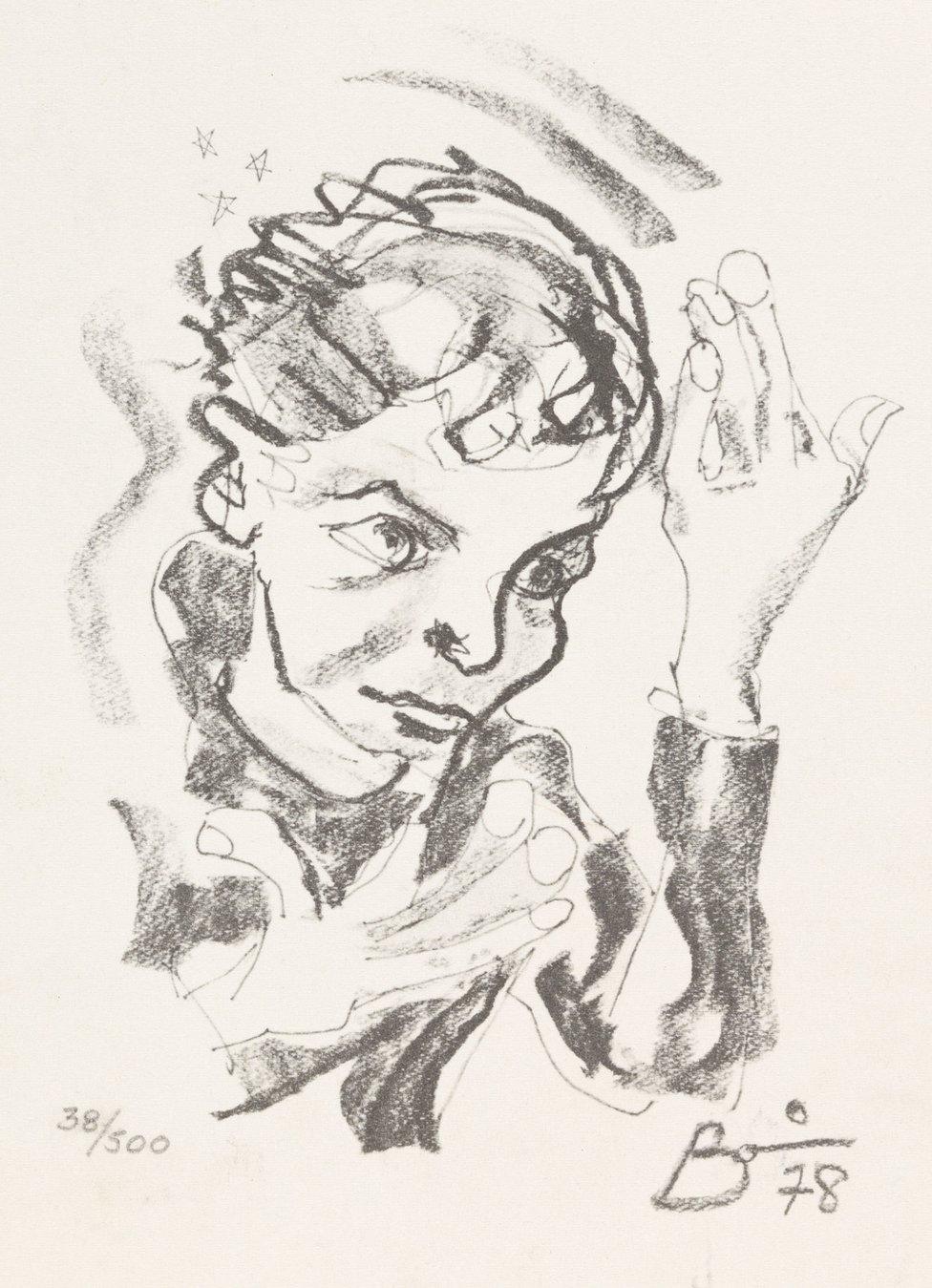
Sketches by the singer will feature in the public archive
"It's an amazing gift," added Kate Bailey, a senior curator, who previously worked on the museum's groundbreaking 2013 David Bowie Is... exhibition.
"It traces the whole of Bowie's career. There are priceless items from his very early days in the in the '60s, right through to [2013 album] The Next Day and beyond.
"I found it fascinating - the personal insights, the handwritten lyrics, the dialogue with other creative practitioners in terms of how a song is written or how a song is recorded or how a video is treated.
"All of these things are incredibly rich and powerful."
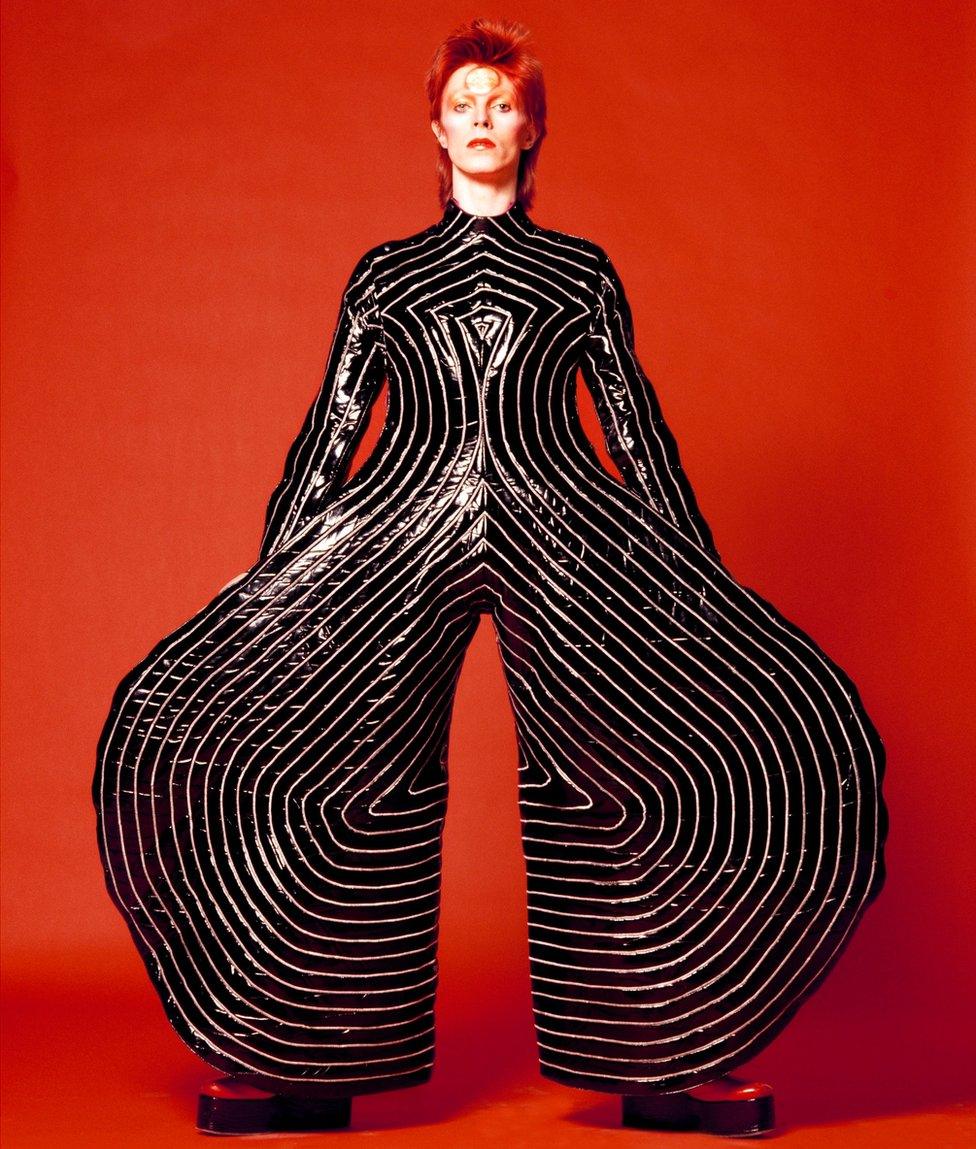
The star wearing a memorable Kansai Yamamoto costume
Other highlights include handwritten lyrics for songs including Fame, Heroes and Ashes to Ashes; Bowie's Ziggy Stardust costumes, designed by Freddie Burretti in 1972; and the union jack coat designed by Bowie and Alexander McQueen for the 1997 Earthling album cover.
The collection also features Brian Eno's EMS synthesizer, used on Bowie's 1977 albums Low and Heroes; and examples of his "cut-up" technique for lyric writing, which involved literally chopping up existing texts to generate new meanings from the rearranged pieces.
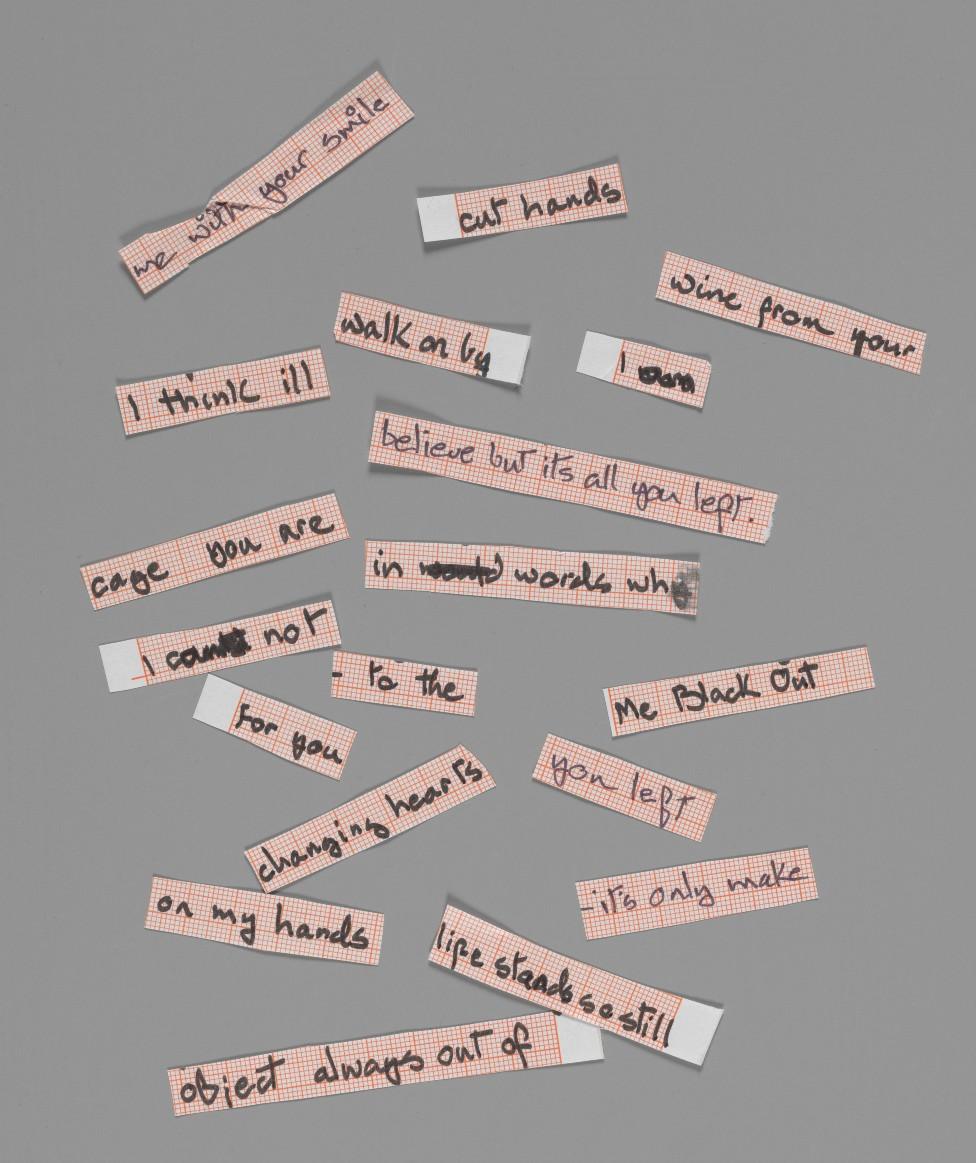
He used a cut-up technique, popularised by the US author William S Burroughs
Ms Bailey said the archive had been preserved with "fantastic care" and "meticulous" attention to detail.
"These objects, these documents, had importance to him and you get the sense that, because he was always moving on creatively, it was helpful to park and collect and store [everything] in order to move on to the next character or project."
The acquisition by the V&A, and the creation of the Bowie centre, was made possible by the David Bowie Estate and a £10m donation from the Blavatnik Family Foundation and Warner Music Group.
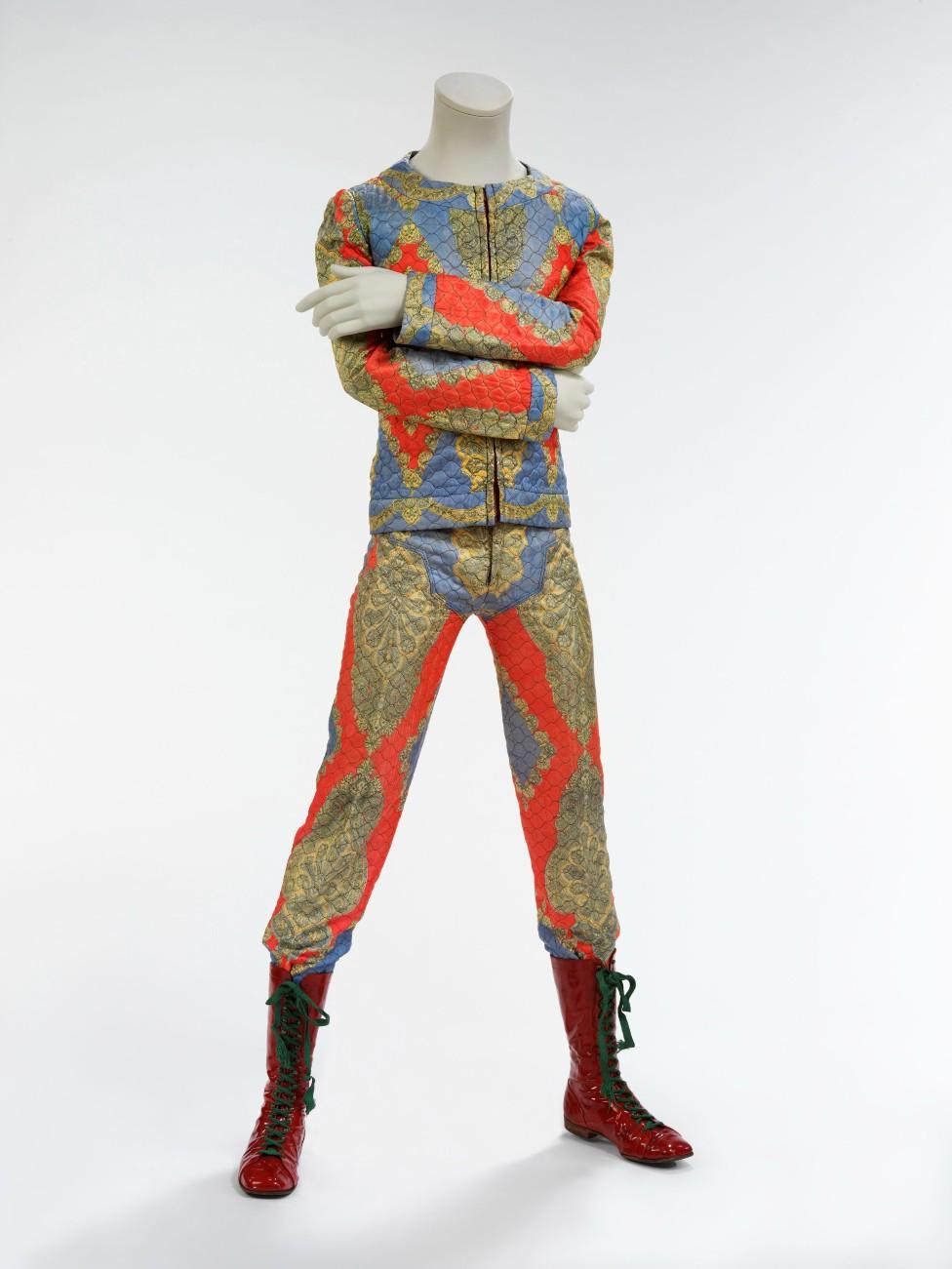
A colourful quilted outfit worn by Bowie in his Ziggy Stardust era, in the early 1970s
Born in Brixton, London, Bowie became one of the most influential and innovative musicians of the 20th Century, evading categorisation as he explored endless musical avenues, and experimented with the power of imagery and persona.
The V&A established a relationship with the star in 2013, staging the blockbuster retrospective David Bowie Is... which was seen by more than 2 million people.
The star died just three years later, of liver cancer, days after releasing his final album Blackstar.
In a press release, a spokesperson for Bowie's estate said: "With David's life's work becoming part of the UK's national collections, he takes his rightful place amongst many other cultural icons and artistic geniuses.
"The David Bowie Centre for the Study of Performance - and the behind the scenes access that V&A East Storehouse offers- will mean David's work can be shared with the public in ways that haven't been possible before."
Producer and guitarist Nile Rodgers, who collaborated with Bowie on the 1983 album Let's Dance, added: "I believe everyone will agree with me when I say that... if only one artist could be in the V&A it should be David Bowie.
"He didn't just make art, he was art!"

Follow us on Facebook, external or on Twitter @BBCNewsEnts, external. If you have a story suggestion email entertainment.news@bbc.co.uk, external.
Related topics
- Published7 February 2023
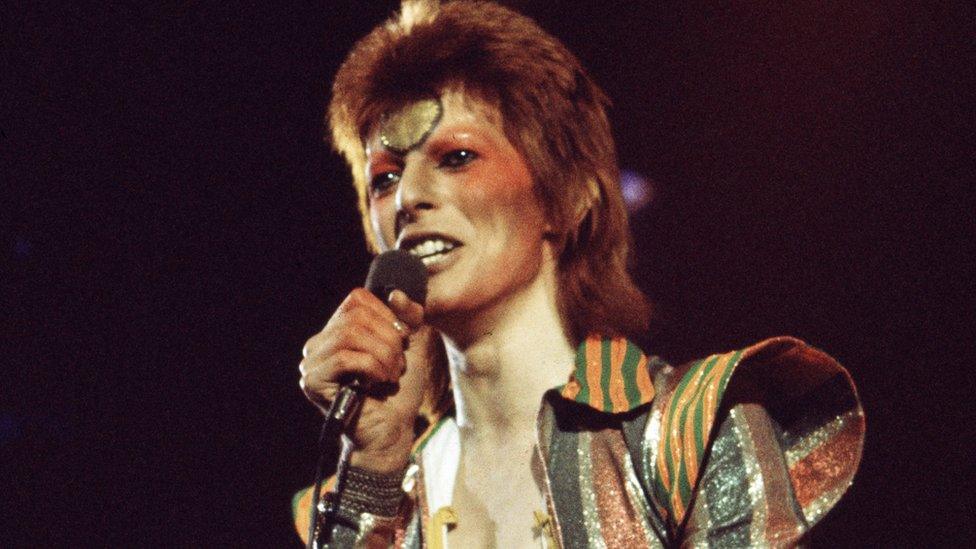
- Published26 May 2022
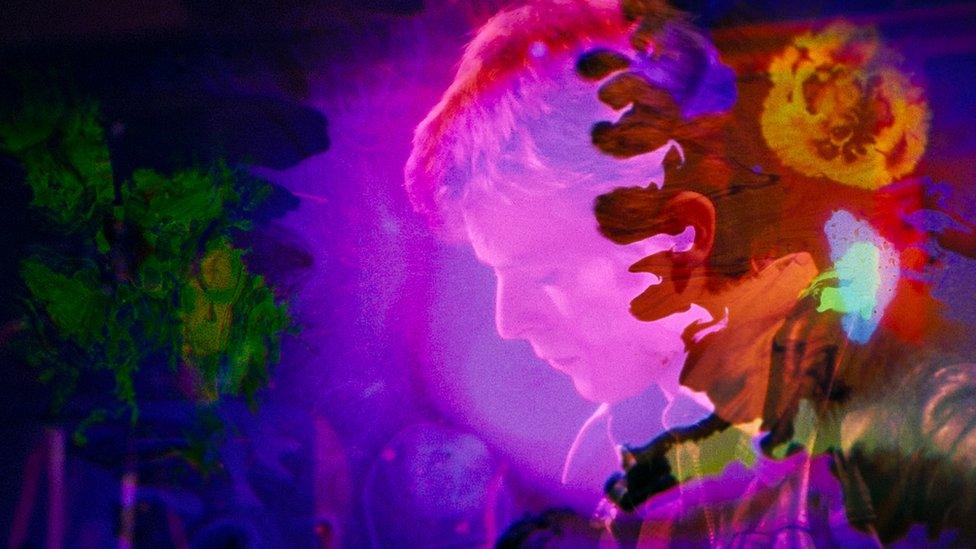
- Published3 January 2022
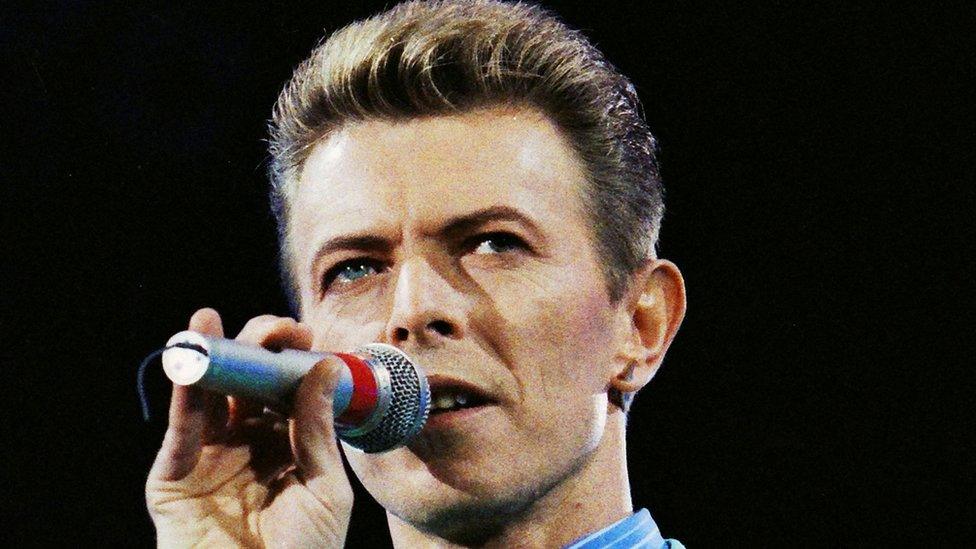
- Published19 November 2021
